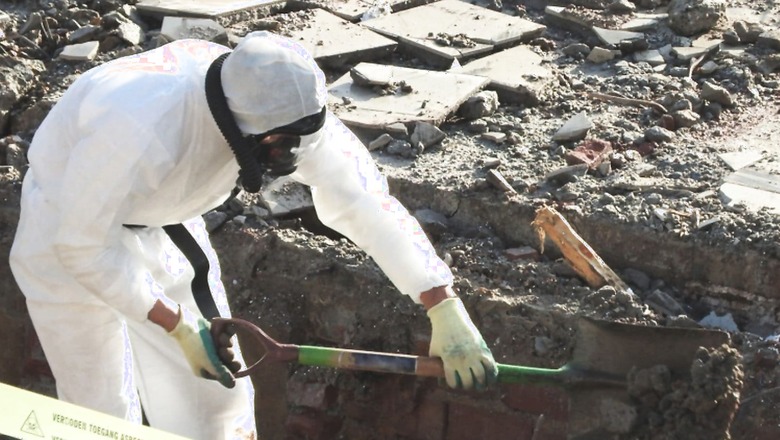
views
The Indian Institute of Technology (IIT) Madras and Indian Institute of Technology (IIT) Kanpur researchers are jointly conducting a study to find out the appropriate policy instruments that can help India to reduce lead pollution.
“The research groups joined forces to look collectively at the problem of lead recycling in India as lead pollution can harm the mental and physical health of people and can contaminate the environment,” IIT Madras said.
The workers who recycle lead in an informal setting break the lead-acid batteries in a fashion causing spillage of acid and lead dust in the soil and surroundings. The lead is melted in open furnaces due to which poisonous gases reach the air. This way of lead recycling is not only harmful to the environment but also to the health workers engaged in the recycling process.
However, the low operational cost of this manoeuvre makes it still an attractive choice. The presence of the informal sector and its undesirable consequences are more predominant in developing countries where the costs and lenient regulations and laws have helped the unregulated sector to grow at a faster pace, says the institute.
The researchers assessed the impact of policies such as reducing the tax on regulated recyclers, subsidies to organized recyclers and formal battery remanufacturers on the performance of battery recycling to name a few. The researchers used a system dynamics model to explore the implications of economic policies quantitatively on the recycling of used lead-acid batteries.
The study suggested that the policy guidelines such as reducing the tax on the regulated recycling sector and providing subsidies to regulated recycling and remanufacturing sectors reduce lead pollution from lead-acid battery recycling. Another important finding was that a very high subsidy to the formal remanufacturing sector can lead to the shutting down of both regulated and unregulated recycling sectors.
The research team included Dr RK Amit, Professor, Department of Management Studies, IIT Madras, Dr B Vipin, Assistant Professor, Department of Industrial & Management Engineering, IIT Kanpur, Dr Janakarajan Ramkumar, Professor, Department of Mechanical Engineering, IIT Kanpur, and Brahmesh Vinayak Joshi from IIT Kanpur. The team published the results of their work in the international research journal Resources, Conservation and Recycling.
Elaborating on the importance of research on lead pollution, Prof Amit said, “The insufficiency of primary lead sources to satisfy the demand makes the recycling of used batteries necessary. However, the unscientific way of recycling by the unregulated sector poses serious environmental and health threats due to the high amount of lead excretion. We studied to quantitatively assess the impact of different policy instruments on shifting the recycling business from unorganized to the organized sector in India.”
Lead is used in various industries such as paints, cosmetics, dyes, ammunition, and jewellery, among numerous others, but the battery sector remains the major consumer of this metal by utilising 85 per cent of the production. A report by UNICEF titled ‘The Toxic Truth: Children’s exposure to lead pollution undermines a generation of potential’ estimated that approximately a third of the world’s children, including 27.5 crores of Indian children, have higher exposure to lead as their blood lead levels have 5 micrograms per deciliter or more levels which are hazardous to their health.
Read all the Latest News, Breaking News and Assembly Elections Live Updates here.
















Comments
0 comment